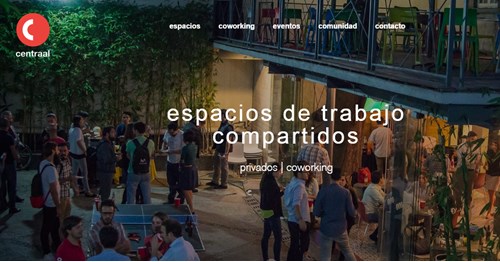Latin America is a vigorous region, where skillful and internationally recognized entrepreneurs live. They generate revolutionary ideas targeting B2C and B2B environments.
Business innovators are those who have great ideas and get to materialize them through products that provide efficient solutions to a social group. In addition, an ideal environment should be favored to promote this type of knowledge, looking to create sustainable business development solutions.
However, the media keeps informing us –almost every minute of the day– about “innovation” created in different fields. But, do we really know what innovation means? Are we aware of the characteristics of everything new in science and technology? Do we know what a hub is? What does it mean? What economic and social value does it add? What are the objectives looking to be reached through these futuristic cities?
The concept of a hub does not only apply to interconnected cities around the world; a hub is a space where groups of people with innovation perspectives and entrepreneurship converge, with the only purpose of creating and promoting start-ups.
Tech-hubs are an essential part of the hub ecosystem. Shared office infrastructure, at a low price, intended exclusively for entrepreneurs. This modern organizational trend has become a strategic practice since these sites play an essential role for the creation of new business or personal projects: these are where opportunities and markets that could positively impact contemporary digital economy are born.
Factors contributing to the rise of start-ups in a specific location are the will of different government levels to offer economic stimuli incentivizing entrepreneurship, legal certainty for such investors who are interested in these projects, and establishment of favorable tax conditions for all players of this growing business network.
The economic and social environment must be favorable for accelerators of undertakings and micro-businesses, which makes tech-hubs a more cost-effective and innovative commitment to development and capitalization of ideas.
However, are there any places similar to those described above in our continent? The answer is yes.
Following are some of the Latin-American cities with the largest concentration of tech companies and start-ups:
- Buenos Aires.
- Santiago de Chile.
- Recife.
- Mexico City.
- Bogota.
- Medellin.
The rise of tech-hubs in Latin America shows that countries are increasingly more interested in investing in start-ups to generate sustainable development and become an employment and income generator –just like large companies in Silicon Valley– which may encourage dyanamization of markets.
Tech-hub panorama in Latin America
The rise of this concept in Latin America means that there is a strong move towards industrializing the regional economy. Impact Hub is a tech-hub example to follow.
This project is a global platform driven by and for communities interested in getting their business ideas materialized, which promotes coworking, networking, conference spaces and programs for entrepreneurs, professionals and organizations, who are willing to generate changes in society.
Impact Hub has widely expanded, becoming a platform of over 11,000 members and 80 hubs around the world. In Latin America, it operates in 11 cities, with over 1,000 members in Brazil, Mexico, Colombia, Venezuela and Guatemala. The main objective of this multi-company approach accelerator is to launch eight more Impact Hubs between 2016 and 2017, through alliances that may help strengthen its strategic pillars: innovation and entrepreneurship.
Over the past 10 years, tech-hubs have strengthened and there are increasingly more people looking for these knowledge spaces to exchange science and discuss and exchange ideas, generating solutions to economic and/or social problems.
“The Latin-American panorama as to start-ups is undergoing an interesting launch phase”, explained, in 2015, Miklos Grof, Fundacity’s CEO, a Chilean platform that connects start-ups to investors located in over 127 countries.
Google is a company committed to the region. It has announced that Centraal hub will open to the public in Mexico this year. The mission of this Internet giant’s commitment is to bring citizens closer to different programs designed by Google to boost their businesses. The Centraal initiative will join Google’s “Passport” program for entrepreneurs, which provides access to over twenty Google partners around the world.



